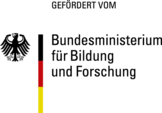II Internationales Symposium
Taking place on 8 - 9 February 2018, the II International Symposium ´Global Crises and Conflicts over Resources` deals with conflicts over resources — for instance, regarding mining and land — that are related to contemporary political-economic and socio-ecological crises.
News vom 20.12.2017
The symposium focuses on four themes: theory and concepts; the role of the state; social relations; and transformation from below. The aim of the symposium is to bring together scholars from different fields of research and world regions to enhance our knowledge of the linkages between conflicts and global crises, the role of the state, the interrelations between conflicts over resources and social relations, and transformations from below.
Linking conflicts and global crises: theories and concepts
Conflicts over resources take place in the context of global crises. Changes in the world economy affect land uses and the organisation of agriculture and mining. New possibilities afforded by telecommunications and mobility impact the everyday life of social actors, as well as their room for manoeuvre in relation to conflicts. At the same time, the impacts of large-scale land transformations are felt, first and foremost, on-the-spot at the sites of extraction and land use change. Different concepts (agency, entanglement, and frontier, among others) and fields of research (such as Critical Agrarian Studies or Critical Spatial Theory) provide entry points with which to analyse the linkages between global crises and conflicts over resources. Whether the focus lies on places, networks, (global) political-economic structures or actors leads to different conclusions about the relationship between the ‘global’ and the ‘local’, as each theoretical approach conceptualises global–local relationships differently. The aim of this panel is to bring together theories and concepts from different fields of research in order to assess how they contribute to our understanding of the links between global crises and conflicts over resources.
- How can we conceptualise the link between global crises and conflicts over resources?
- What are the potentials and limitations of specific theories and concepts for explaining different phenomena?
- How do theories and concepts relate to each other? Are there concurrences or contradictions when explaining different phenomena?
The role of the state in conflicts over resources
The state plays an important role in conflicts over resources, yet the specific interrelations between the state and such conflicts remain unclear. The state is not a homogenous actor, but rather a complex mesh of actors and institutions operating at different scales with complementary und overlapping jurisdictions, conflicting interests, and unequal equipment and legitimisation. State actors define, regulate, and secure land relations, or omit to do so, and thus significantly contribute to the (re-)structuring of rural areas. They pass laws, create land registers, and issue mining concessions. However, state actors may also become important allies for social movements. States differ in relation to their abilities, capacities, and resources. Yet conflicts over resources also have the potential to impact on state structures, as the state is not a rigid construction but rather subject to constant change.
- How does the state act in conflicts over resources?
- Why do state agents act as they do in conflicts over resources? How can we explain differences within and beyond national borders?
- What are the possibilities of social actors to change the state? And how do their actions contribute to the legitimisation of the state?
Resources, conflicts and social relations
Social relations such as class and gender, labour, rural–urban relations, race or ethnicity, and their intersections, are (re-)produced through forms of appropriation and use of, access to, and control over resources. Vice-versa, the impacts of ecological crises and resource degradation vary depending on social relations that shape the forms of appropriation and use of, access to, and control over resources. Social relations influence the forms of action, actor constellations, and claims that are made over resources. In conflicts over resources, social relations are (re-)produced, transformed, or can become the main object of dispute.
- How does the expansion of mining and agribusiness influence social relations?
- How do we conceptualise the interrelations between conflicts over resources and social relations?
- How do social relations unfold and become transformed in conflicts over resources? Are there differences depending on specific contexts, and how can we explain them?
- How do actors address social relations in conflicts over resources?
Transformation from below
In conflicts over resources, social actors mobilise against the expansion of industrial agriculture and mining, the privatisation and concentration of land, displacement and the loss of livelihoods, ecological impacts, adverse incorporation, undemocratic decision making, and the adoption of new laws. At the same time, political, cultural, or access rights, citizenship or the recognition of rights to territorial self-determination and autonomy have often been claimed. In many places – though not everywhere – social actors achieve the cessation of projects or legal changes as well as changes in project design. However, it remains unclear what sort of transformative power – in relation to democracy and self-determination, and labour, rural, and environmental justice – emanates from conflicts over resources, and thus which possibilities of ‘transformation from below’ exist. Based on the assumption that conflicts contain the potential for social change, we focus in this panel on the possibilities and limitations of transformations from below.
- What are the political and social effects of conflicts over resources; for instance, on existing political institutions and structures, policies, legislations, and the recognition or extension of cultural, social, and political rights?
- How do actors combine claims for social transformation with their protest against specific mining or agribusiness projects, laws, etc.? How do they pursue these overarching aims after achieving or failing to achieve the concrete goals of their protest?
- What are the starting points, similarities, and differences of transformations from below within and beyond nation states and regions?
- How do we study, measure, and conceptualise transformations from below?

